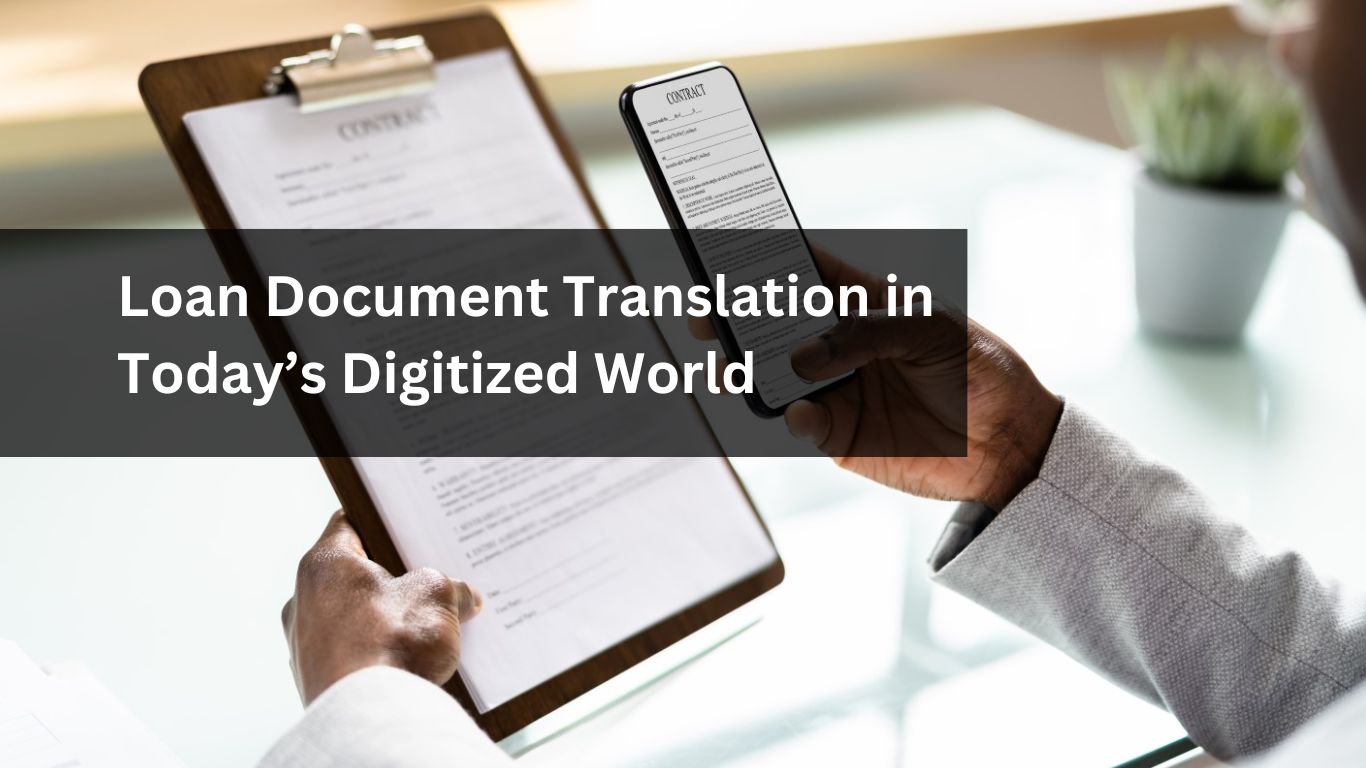In our ever-connected world, where borders seem to blur and markets transcend geographical boundaries, the significance of loan document translation cannot be overstated. As financial transactions increasingly occur on a global scale, the need for accurate and reliable translation of loan documents has become paramount. In this digital age, where speed and efficiency are prized virtues, effective translation services play a crucial role in facilitating seamless communication and ensuring compliance with legal and regulatory requirements. Let’s delve into the importance of loan document translation in today’s digitized world.
 Global Connectivity:
Global Connectivity:
In today’s interconnected world, businesses and individuals frequently engage in cross-border transactions. Whether it’s a multinational corporation securing financing for expansion or an individual seeking a mortgage for property abroad, loan documents often need to be translated to facilitate communication between parties from different linguistic backgrounds. Translation bridges the gap between languages, enabling smoother interactions and fostering trust between lenders and borrowers.
Legal Compliance:
Loan agreements are laden with legal jargon and clauses that must be clearly understood by all parties involved. Translating these documents accurately is essential for ensuring compliance with local laws and regulations. Misinterpretation or mistranslation of legal terms can have serious consequences, potentially leading to disputes, litigation, or even financial penalties. By providing accurate translations, language service providers help mitigate legal risks and ensure that all parties are fully informed and legally compliant.
Risk Mitigation:
In the financial sector, precision is paramount. Any ambiguity or error in loan documents can lead to misunderstandings, delays, or financial losses. By employing professional translators who specialize in finance and legal terminology, financial institutions can mitigate the risk of miscommunication and ensure that all terms and conditions are accurately conveyed. This not only protects the interests of lenders and borrowers but also enhances the overall efficiency of the lending process.
Customer Experience:
In an era where customer experience is a key differentiator, providing multilingual support can significantly enhance the borrower experience. By offering loan documents in the borrower’s native language, financial institutions demonstrate their commitment to inclusivity and customer-centricity. This personalized approach fosters trust and loyalty among borrowers, leading to improved satisfaction and retention rates.
Digital Transformation:
As the financial industry undergoes digital transformation, the demand for digital translation solutions is on the rise. Automated translation technologies, coupled with machine learning algorithms, are revolutionizing the way loan documents are translated and localized. These advanced tools not only streamline the translation process but also improve accuracy and consistency across multilingual documents. By embracing digital translation platforms, financial institutions can enhance efficiency, reduce costs, and gain a competitive edge in the global market.
Conclusion
loan document translation plays a vital role in today’s digitized world by facilitating global connectivity, ensuring legal compliance, mitigating risks, enhancing customer experience, and driving digital transformation within the financial industry. As businesses and individuals continue to engage in cross-border transactions, the demand for accurate and reliable translation services will only continue to grow. By partnering with experienced language service providers and leveraging innovative translation technologies, financial institutions can navigate the complexities of international lending with confidence and success.

